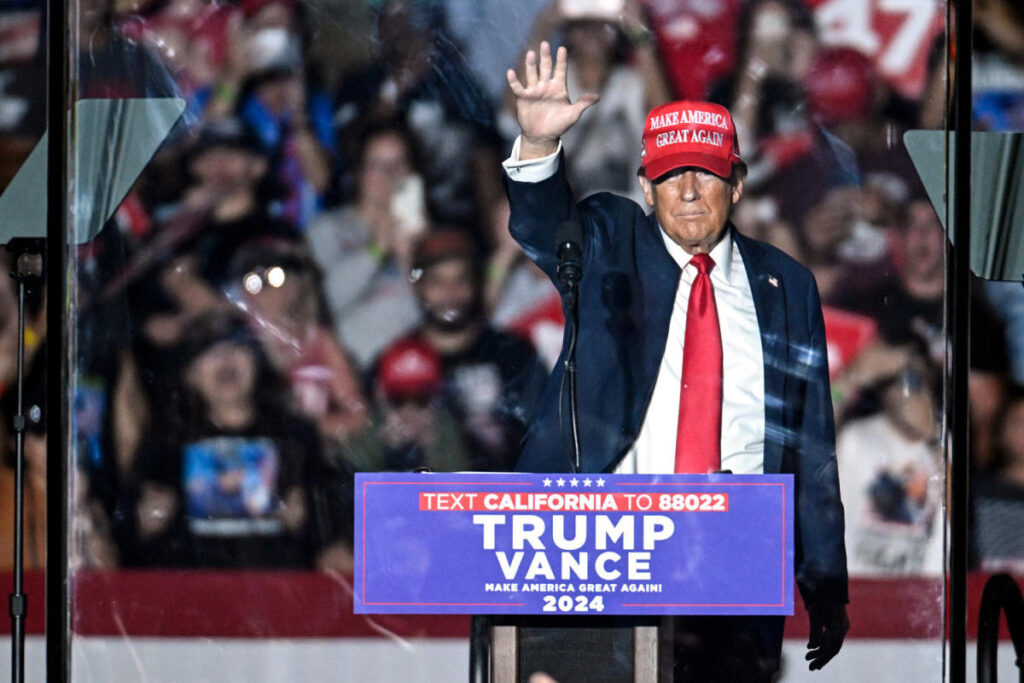Vem Miller, a 49-year-old resident of Nevada, made headlines after being arrested near a rally for former President Donald Trump in Coachella, California. His arrest on state weapons charges occurred a mere quarter-mile from where the rally was held, and he immediately took to social media to assert his innocence in an online video published on Monday. In this video, Miller denied any intentions to assassinate Trump, claiming instead to be a longstanding supporter of the former president. He stated that he received an invitation to attend the rally from Republican officials in Nevada and contested the accuracy of statements made by local law enforcement, describing their claims as “false and defamatory.”
In the video, Miller claimed to hold various positions within the Trump campaign, stating that he is a Trump caucus captain and a team leader, although NBC News has not been able to confirm these assertions or his alleged invitation from the Nevada Republican Party. Miller emphasized his deep support for Trump, portraying himself as a dedicated advocate who has contributed to the campaign significantly. His statements, however, raised skepticism given the circumstances of his arrest, which involved multiple forms of identification, an unregistered vehicle, and firearms, leading law enforcement to question his intentions.
Riverside County Sheriff Chad Bianco provided additional context to the incident in an interview with NBC Los Angeles, suggesting that Miller’s actions could have posed a serious threat to Trump. Bianco noted that the presence of multiple red flags—including the unlicensed vehicle, fake license plates, and weapons—justified the deputies’ responses. He expressed confidence that they potentially prevented a dangerous situation by arresting Miller before the former president arrived at the rally, reinforcing the necessity of their actions amid a charged political landscape.
Following Miller’s arrest, federal law enforcement authorities announced their involvement in investigating the incident, though no federal charges had been filed against him at that time. U.S. Attorney Martin Estrada confirmed that the U.S. Secret Service assessed the situation, concluding that Trump’s safety was not compromised during the rally. While initial reports hinted at a possible assassination attempt, subsequent investigations indicated that there were no credible threats to Trump’s life linked to Miller’s arrest.
Miller later elaborated on his situation, stating that he arrived at the rally intending to enter via a designated special entrance, where he would find parking. He acknowledged the presence of two firearms—specifically a Glock and a shotgun—in the trunk of his car, asserting they were for personal protection rather than any malicious intent. His insistence that he was simply being cautious did not ease the concerns raised by law enforcement, which were heavily scrutinizing his motives in light of his possession of weapons near a high-profile political figure.
As Miller continued to defend himself, he accused local law enforcement of “slandering” his name by labeling him as a potential assassin. He described the allegations against him as “absolutely insane” and strongly maintained that everything he claimed is verifiable by evidence. Sheriff Bianco stood firm in his assessment of the successful apprehension of Miller, asserting that their actions were warranted based on the threats he posed. Despite Miller’s insistence on his innocence, the incident highlighted the complexities surrounding security measures at political events, particularly amidst a polarized political climate where threats, real or perceived, remain a pressing concern for law enforcement.

